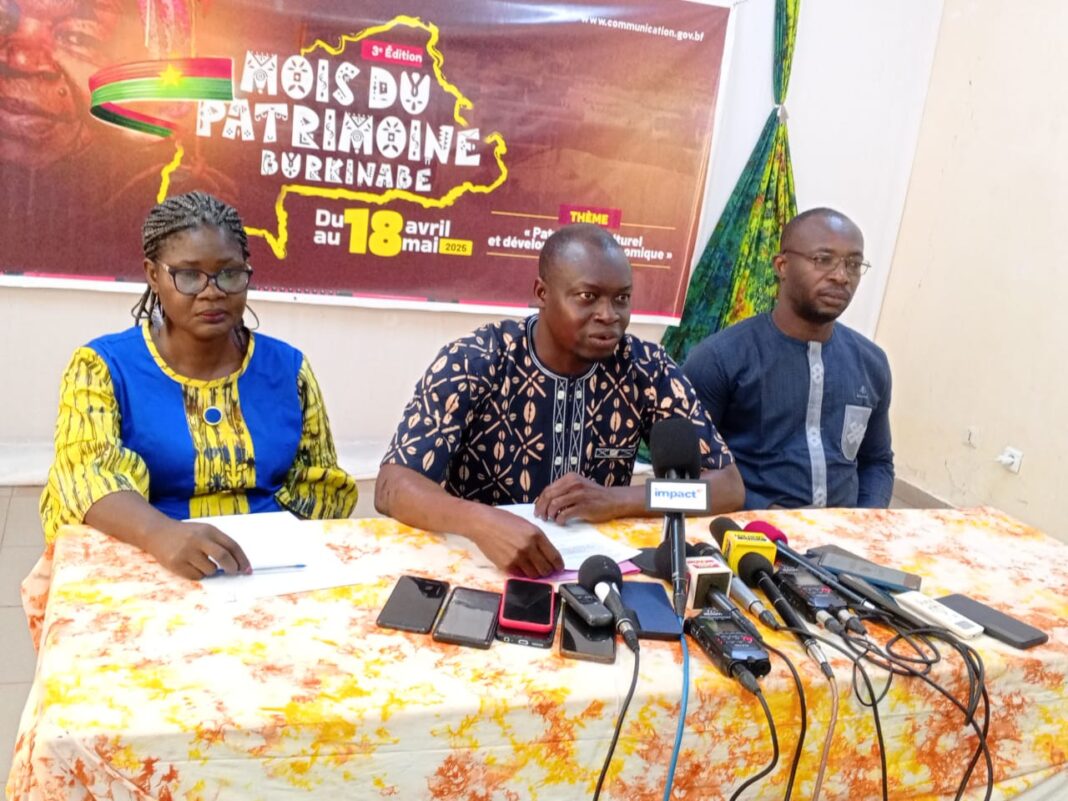Building on the success of the previous two editions, which yielded significant positive results, the Burkinabe government, drawing on its acquired experience, is organizing the third edition of the Cultural Heritage Month. The official launch is scheduled for April 17th, 2025, in Bobo-Dioulasso. This was announced by Moctar Sanfo, Director General of Culture and Arts, on Monday, April 14th, 2025, during a press conference.
During the meeting with members of the media, the Director General recalled that the second edition led to a significant increase in the number of visitors to museums and cultural spaces across the country.
By way of illustration, Mr. Sanfo cited the National Museum of Burkina Faso, which recorded 44,732 visitors in 2024, an increase of 160% compared to the previous year. Following this, the Sogossira Sanon Communal Museum experienced 31,932 visitors, representing a 21% increase, and finally, the Daouda Museum saw its visitor numbers rise to 5,043, a 177% increase compared to 2023.
According to the DG, this momentum translated into renewed enthusiasm among the population, who massively participated in organized tours across all regions, under the supervision of governors, from the official launch on April 17th, 2024. The previous edition also saw, for the first time, the Day of Customs and Traditions celebrated with widespread fervor throughout the national territory.
This third edition, themed “Cultural Heritage and Economic Development,” will take place from April 18th to May 18th, 2025, throughout the country. It aims to strengthen the appropriation of their history by the Burkinabe people, emphasizing the contribution of cultural heritage to the economic development of regions, local authorities, and the well-being of communities.
In addition to the usual activities, this edition will introduce several major innovations. The first innovation concerns the increased involvement of youth through activities related to their daily environment. a “challenge shooting” game will be launched, inviting young people to capture images of heritage sites or visuals illustrating the event’s objectives. The best shots will be rewarded during the next edition.
The second innovation focuses on the celebration of the African World Heritage Day, an opportunity for the Burkinabe people to highlight its four sites inscribed on UNESCO’s World Heritage List. These include the Ruins of Loropéni, the W-Arly-Pendjari Complex, the Ancient Iron Metallurgy Sites, and the Royal Court of Tiébélé.
Furthermore, particular attention will be paid to the valorization of archives, through anticipated activities linked to the International Archives Day, celebrated every June 9th. The objective is to raise awareness of the role of archives and to valorize the work of archivists.
Regarding the Day of Customs and Traditions, the new features aim to consolidate the secularism of the State, through strong involvement of the administration, in order to frame the celebration and prevent potential excesses. The State will not intervene in ritual practices but will promote awareness and collective understanding around this day dedicated to ancestral worship.
The National Gastronomy Day, established for the first time in 2024, will be enhanced by a diversification of its content, an increase in the number of participants, and an extension of its duration from one to two days.
The Director General of Culture invites the entire population to mobilize massively to participate in the various activities of this month dedicated to the celebration of Burkina Faso’s cultural heritage.



